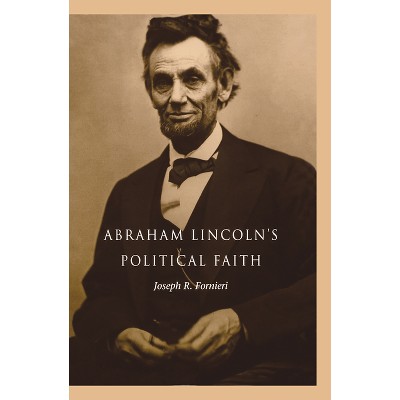Sponsored

Claiming Lincoln - by Jason Jividen (Hardcover)
In Stock
Sponsored
About this item
Highlights
- Abraham Lincoln is clearly one of the most frequently cited figures in American political rhetoric, especially with regard to issues of equality.
- About the Author: Jason R. Jividen is Assistant Professor of Political Science at Alex G. McKenna School of Business, Economics, and Government and Fellow in Civic and Constitutional Affairs at the Center for Political and Economic Thought at Saint Vincent College.
- 243 Pages
- Political Science, Law Enforcement
Description
About the Book
A comprehensive treatment of the Progressives' use of Lincoln
Book Synopsis
Abraham Lincoln is clearly one of the most frequently cited figures in American political rhetoric, especially with regard to issues of equality. But given the ubiquity of Lincoln's legacy, many references to him, even on the presidential level, are often of questionable accuracy. In Claiming Lincoln, Jividen posits that in much twentieth-century presidential rhetoric, especially from progressive leaders, Lincoln's understanding of equality is slowly divorced from its grounding in the natural rights thinking of the American Founding and reinterpreted in light of progressive history. Claiming Lincoln examines the manner in which rhetoricians have appealed to Lincoln's legacy, only to distort that legacy in the process. Focusing on Theodore Roosevelt, Woodrow Wilson, Franklin Roosevelt, and Lyndon Johnson and touching on Barack Obama, Jividen argues that presidential rhetorical use and abuse of Lincoln has profound consequences not only for how we understand Lincoln but also for how we understand American democracy. Jividen's original take on Lincoln and the Progressives will be of interest to scholars of American politics and all those invested in Lincoln's legacy.
Review Quotes
Jividen makes his case simply by contrasting Lincoln's words with those of Theodore Roosevelt, Woodrow Wilson, Franklin Roosevelt, Lyndon Johnson, and Barack Obama.
-- "The Weekly Standard"About the Author
Jason R. Jividen is Assistant Professor of Political Science at Alex G. McKenna School of Business, Economics, and Government and Fellow in Civic and Constitutional Affairs at the Center for Political and Economic Thought at Saint Vincent College.











